Featuring Walid JumblattWeinberg Founders Conference 2007
On October 19, 2007, Walid Jumblatt delivered the keynote address at The Washington Institute's Weinberg Founders Conference. Walid Jumblatt is chairman of the Progressive Socialist Party of Lebanon, leader of the Druze community, and an outspoken ally of the March 14 alliance. The following is a transcript of his remarks.
Ladies and gentlemen, distinguished trustees, I'm delighted and honored to be able to express some viewpoints concerning Lebanon at this particular and decisive moment of the history of my country, here hosted by the prestigious Washington Institute. But to be able to grasp the complex situation, allow me to go back to some historical moments or events that triggered the actual crisis and still are.
The moment of truth, if I can say so, started on August 26, 2004, when Bashar al-Asad summoned Rafiq Hariri, the late prime minister of Lebanon, to Damascus at a meeting that did not last more than ten minutes, and told him bluntly, "Emile Lahoud (meaning the actual president) is me, and if somebody in Lebanon wants me out, I'll break Lebanon. Go and renew his mandate."
Hariri was prevented even to argue, went back straight from Damascus to Beirut, to my place. It was, I think, about noon, one o'clock, and he told me what happened to him with Bashar. For President Marwan Hamadeh, Ghazi Aridi, ministers and members of parliament, and Bassem Sabaa, another member of parliament, the moment of truth, as I said, had come. Some of you might ask why it took me such a long time to defy Syrian occupation of Lebanon. One day -- if I manage to escape from the butcher of Damascus, the inheritor of the assassins, correctly described by Bernard Lewis -- one day I will write my memoirs.
Going back to the same day, August 26, 2004, I told Hariri, who was sad, not to stay depressed. I told him, don't defy him. Don't defy Bashar. He's dangerous. Go and amend the constitution, I will not attack you, but I will not vote for the amendments. On August 28, the government of Lebanon met, and decided to amend the constitution. The minister representing my parliamentary group objected and three days later resigned. The Lebanese parliament was convened on September 3, 2004 and voted for the amendments. Out of 128 members of parliament, twenty-nine defied Syrian orders -- Bashar's orders. I was one of them. Hariri could not but abide reluctantly.
On September 2, 2004, New York local time, the Security Council met and issued the resolution 1559 denouncing Syrian interference and declared its support for a free and fair electoral process in Lebanon's upcoming presidential election. This, of course, did not happen that day, that year, September 3, 2004. This could happen in three weeks time, ahead of us, of this year 2007, the mandate imposed president by Syria, by Bashar, coming close to its end, our constitution allowing us, meaning the actual surviving majority -- one of us, Antoine Ghanem, was assassinated three weeks ago by a car bomb -- Bashar keeping his promise to break Lebanon.
Back to the year 2004, nearly a month after the imposed amendments of the constitution, Marwan Hamadeh, minister and member of parliament, merely escaped death by miracle by car bomb, on his way out of his home in Beirut. Bashar was starting to keep his promise to break Lebanon.
And going back to resolution 1559, adopted on September 2, 2004, it called upon all remaining forces to withdraw from Lebanon. We still had Syrian troops at that time, the Israelis having left in the year 2000. The Syrians left -- yes, they left. They left Lebanon at the end of April, 2005, under the pressure of international support for a free Lebanon, but also and mainly after a huge, peaceful, popular upheaval of free Lebanese on March 14, 2005, called the Cedar Revolution, asking the Syrians to leave, defying Syrian puppets and allies, and paying homage and tribute to the memory of Rafiq Hariri and his comrades. He was assassinated by a truck bomb on February 14, 2005, meaning forty days before. Yes, Asad was right and trying to break Lebanon.
But the journey of the Lebanese people for life, freedom and democracy continued, defying each time the will of Asad to break Lebanon. On April 7 of the year 2005, upon the request of the Lebanese government, the Security Council approved resolution 1595, and an independent commission inquiry -- an International Commission of Inquiry for the murder of Hariri and his comrades. Because we could not at that time, and still in some cases are not able, after thirty years of occupation -- of Syrian occupation --to rely on our proper means of security apparatus. The killing continued. Asad was not intimidated and still is not.
On December 12, 2005, the day Gibran Tueni, hero of the Cedar Revolution, prominent journalist, editor of the An-Nahar newspaper was assassinated, the Lebanese government asked the United Nations for a special tribunal of international character, STI. The Security Council approved this request three days later, on December 15, 2005. The day Gibran Tueni was killed, the ministers of Hizballah and Amal left the government -- the ministers allied to the Syrian and Iranian regime. They came back later on, but from that day, December 12, 2005 until November 11, 2006, the Syrian-Iranian coalition did its best to prevent the formation of this tribunal.
On November 11, 2006, they finally resigned from the government, two days after the government of Fouad Siniora was to approve finally the draft agreement between the Lebanese government and the United Nations. Then the crisis openly widened. The parliament was illegally closed by the speaker preventing the members of parliament -- the actual surviving majority -- to vote to ratify the agreement concerning the tribunal. Meanwhile, on November 21, 2006, eight days after the approval of the draft of the tribunal by the government of Lebanon, Pierre Gemayel, minister and member of parliament, was killed. Yes, Asad was continuing to try to break Lebanon and oppose justice.
Finally, the Security Council having realized that it was impossible to establish the tribunal through the normal constitutional process in Lebanon -- the parliament having been closed illegally by the actual speaker, Nabih Berri -- the Security Council decided to adopt the tribunal on May 13, 2007, by the resolution 1757, and provided ten days to implement it under chapter seven -- meaning until June 10, 2007, in case the parliament of Lebanon could be convened by miracle. This miracle did not materialize, but a bloody message came again on June 13, 2007. Three days after the implementation of the tribunal by the Security Council, Walid Eido, member of parliament, member of the legal commission of the parliament, outspoken critic of the Syrian regime, like Gibran Tueni, like Samir Kassir, like others, was assassinated by a car bomb in Beirut. Yes, Bashar was continuing to break down and oppose justice, local justice and international justice in Lebanon.
Before ending, we are in the three weeks coming to face the moment of truth. Either we will be able to elect a president that will fulfill the aspirations of the Lebanese for a free, independent, sovereign Lebanon in conformity with March 14, the Cedar Revolution, a president that will respect international resolutions, abide by them and cooperate fully with the tribunal, or Lebanon will succumb to Syrian tyranny and Iranian hegemony. Lebanon will just disappear -- the only model of diversity and pluralism and democracy in the Middle East.
But let nobody be fooled that the killing machine will stop. As long as he is there, ruler of Damascus feeling secure in Damascus, supported by the Iranians, as long as some people think that by engaging him it could lead to changes in behavior -- well, in such a case, why not be engaged with bin Laden. Like Chamberlain long time ago engaged with Adolph Hitler. We know that history is full of events when engaging dictators led to massacres, to tragedies.
I will end by saying that it took me some time, quite a long time, quite a long time, quite a long journey to grasp certain values, conclusions about the importance of democracy, freedom, justice, not to say anymore. But by having joined the forces of the March 14, the courageous Lebanese seeking freedom, democracy, and justice, and having discovered maybe late -- you know, sometimes there is a kind of veil in front of your eyes, obstructing the vision of truth -- having discovered maybe late that justice cannot coexist with tyrants, and that so-called resistance movements or movement of national liberation supported by dictators in Damascus or forces of darkness in Tehran cannot but act accordingly to their wishes, to the wishes of their masters and dictates. And having done my -- with my best comrades of the March 14, all of them -- having done my best to materialize the tribunal, waiting for the verdict and reminding the audience how fierce they are, they were and they are, the allies of Syria and Iran opposing the tribunal, opposing justice, I hope that by my actual action and by my comrades justice will be done, and that the murders will be brought to trial. And that somewhere I will have been faithful to the memory of a gentleman as Arthur Sulzberger described him in the New York Times on March 16, 1997 the day Kemal Jumblatt was murdered in the Chouf Mountain in Lebanon, killed by the Syrian regime and with him perished so many innocents.
Robert Satloff, The Washington Institute: Mr. Jumblatt, I'd like to open up a question-and-answer session with you by asking you one or two questions. First, you've been in the United States for the last couple of weeks -- last couple of days that is. The United States was not mentioned in your remarks, and so I wanted to ask you what sort of advice or requests you have made either on this trip or on recent trips to your American interlocutors about what we can do, or what we should do to advance the cause of freedom and democracy that you so eloquently talked about?
Walid Jumblatt: I mentioned in my speech international forces led by the actual administration, Mr. Bush and Mrs. Rice and others, and that with Mr. Chirac. Chirac at that time and international community obliged the Syrians to get out of Lebanon. And thanks to this administration and other administrations, French -- [unintelligible] -- we've got finally, finally, the so-called tribunal. Of course what is left is to materialize this tribunal, to name the prosecutor, and I did my best here also asking them to help us naming a prosecutor -- a good prosecutor. And I think Mr. Keston by mentioning the inquiry, we had a good one at one time, a commissioner called Melius. He went straight to the point. Well, I hope the Ramatz will also go straight to the point, but we need a prosecutor.
So we've gone to this administration, the states, the people of the states to get help, but as I told you, and I was precise and frank, the killing machine will not stop and if the Syrian troops withdrew officially, they left behind them a brigade or division of the Iranian Revolutionary Guards occupying well, half of Lebanon, paralyzing the economy and at any time facilitating the task themselves or for the Syrian services to kill us. That's it.
Satloff: Mr. Jumblatt, when you think about the presidential election that is currently underway, there is an impasse right now. How do you imagine that the Lebanese and the March 14 specifically, but parliament more generally, how do you think that this impasse will be resolved?
Jumblatt: We have no choice. We're tried and Mr. Hariri engaged the dialogue with the other side so Mr. Berri, the speaker of the parliament, but we have no choice but to elect one of us. And here they will tell you, but why don't you fix up a compromise? The compromise was fixed a long time ago. Let's not fool ourselves. The compromise was fixed in 2005 when we said to the French, and to the Americans, it is impossible technically or politically to disarm Lebanese and non-Lebanese militias in Lebanon. It's impossible. And we got at that time into the so-called dialogue.
Of course, we thought it was possible to dialogue. We discovered later on that a dialogue was impossible. You are talking with people who are just willing to attack you. So this is why we need a president that will abide by international resolutions. Later on, if the regional circumstances are better -- and when I say are better I mean if Bashar is ousted from power -- let's be blunt and frank. Unless he's not -- is still there secure, immune, we will still have the same problem, the same problem -- our borders between Lebanon and Syria are still open. I was only one when Dr. Rice came through the war in 2006 to ask for -- to monitor international observers at the border, the Lebanese Army should be [unintelligible] the United States are not providing adequate technical and military assistance to the army, although taking into account also that some people in the army, not to name them, are still from the old regime. You know, after thirty years of Syrian occupation, it's not that easy to fix up a new generation of independent Lebanese army officers.
Satloff: Mr. Jumblatt, you just referred to international forces. One of the innovations since last summer's war that many people point to as a positive development is the deployment of international forces in southern Lebanon. What is your evaluation of the effectiveness of the international forces, especially in terms of their role in preventing Hizballah operations and in preventing the smuggling of weaponry from Syria and Iran?
Jumblatt: They have nothing to do -- these international forces on the border between the state of Lebanon and the state of Israel have nothing to do with the borders between Lebanon and Syria. The Lebanese government according to the resolution 1701 is to ask the Germans, I think, to assist them technically how to control the borders between Lebanon and Syria. They have started a very slow and endless process I think, and it started on the borders of Tripoli until they reached the borders whereby you have rockets and whereby you have other things coming through. It will take some time, but the actual United Nation forces have nothing to do according to their mandate with the Lebanese-Syrian borders. And again I say, as long as these borders are open, you won't be able to speak on equal terms with Hizballah.
Satloff: Just one last question before I open up the discussion session. There is much talk about the potential for a Syria-Israel peace negotiation. One of the fears that has been expressed by many is that a Syria-Israel peace negotiation immediately has an impact on Lebanon. Is it -- in your view, is it possible to imagine or to create a Syria-Israel peace negotiation in which Lebanon and Lebanon's security and defense is protected, or is it by definition an issue in those negotiations?
Jumblatt: Up till now, this administration is adamant about the Syrian regime meaning that, well, they won't trade -- and I'm sure about it -- they won't trade Lebanon for anything else. Okay. But looking back at the past experience in history, and knowing quite well the Syrians, and indirectly the Israelis, of course, when they fight, the Syrians and the Israelis they fight on our soil. The last fight between them was in 1973 when they fought the so-called war of 1973, and from that time on, the Golan is still occupied, and from that time on there hasn't been a single shot on the Golan.
I wouldn't mind engaging the Syrians, conditioned by the fact that it would be restricted to resolution 242 meaning the Golan. But knowing well the Syrians, they will start with trades, to trade Lebanon, the tribunal, the democracy in Lebanon and maybe trade something else knowing quite well the Syrians and knowing well also the Israelis' past deeds in Lebanon. They don't care about an independent, sovereign, democratic Lebanon. I know that by past experience, and well, if you want to make the story very long, we'll go back to 1975, 1976 when unfortunately at that time -- I said this is history --- Lebanon was given as a gift to Hafiz al-Asad by at that time the American administration, Kissinger.
Satloff: With that, we're going to open the floor for questions. Let me first turn to my colleague, Ambassador Ross.
Dennis Ross, The Washington Institute: Walid, your message was very, very straightforward, hardly subtle: you pretty much called for regime change in Syria. I would suggest that in this town, regime change probably doesn't have quite the allure it once had, so I would ask you the question: if regime change isn't likely in terms of American policy towards Syria, what do you want to see the administration do? What could it do at this point? Beyond what you described in terms of supporting prosecution, what could it do more than it's doing today to try to effect the ongoing killing machine as you described it?
Jumblatt: Look, I might be -- how should I say -- blunt. I might also be -- you might find my remarks quite unusual. It was not a mistake in the absolute to remove Saddam Hussein. Removing dictators is not at all, never a mistake. Maybe it was mistake the timing, maybe. Maybe it was mistake the procedure later on. I said, maybe. But removing Saddam Hussein was not a mistake. Later on what happened, already happened, and I know that American people are suffering about the casualties. I know that. And Bashar al-Asad did profit out of it, and Bashar al-Asad, as you know, sent a lot of terrorists, car bombs, imported a lot of them from Lebanon, from Saudi Arabia, from Yemen, even from Chechnya -- everywhere -- and sent them to Iraq, to kill you in Iraq.
I don't think you can change his behavior. And I know very well that he's ready to sit with you, he's anxious, he'd dying to sit with you, with the Americans, but one issue: Lebanon, the tribunal, one issue. I'm not going now to speak about Hamas and other things to complicate issues, but I know him quite well. I know the Syrian regime quite well and I have the experience of history. My father after all opposed Syrian [unintelligible] to Lebanon. This is why he was killed. So back to your question, there hasn't been effective sanctions against him. What do you want me to say? I'm speaking to a diplomat.
No, I'm not going to be a diplomat. If you could send some car bombs to Damascus, why not? [Laughter, applause]
Satloff: I can honestly say we've never had that before at The Washington Institute. [Laughter, applause
Mouafac Harb, former director of network news, al-Hurra: I believe this is probably your third and I don't - maybe your fourth trip to -
Jumblatt: Fourth.
Harb: Your fourth trip to Washington.
Jumblatt: Yes.
Harb: Let me put Dennis's question in more journalistic language. Do you feel that you are getting the appropriate support from this administration or are you only getting lip service?
Jumblatt: Yes. Yes. Of course, yes. But I mean, back to the original issue -
Satloff: Support or lip service?
Jumblatt: Sorry?
Satloff: Are you getting the support or are you getting just talking?
Jumblatt: No. Not talking. The issue of the tribunal was a major issue, a major issue, and [unintelligible] support and I can tell you we faced major obstacles at that time of course from the Syrians but from the Russians also, but it was a major issue.
But is it enough? We've got to wait for the prosecutor, we've got to wait for the verdict so to the able maybe together us and the American administration to intimidate Bashar. He knows it, and he's playing on time. He's playing on time trying to delay time. Until then next month, next year we might not be here. Until then, the actual majority which is left -- they still have to kill four. If they kill four, they bring one puppet, a president of Lebanon, one puppet to Syria and Iran. And my knowledge in law is limited, but I can prove, I know that somewhere this puppet could delay by various ways the tribunal. The tribunal about Milosevic in Yugoslavia was started in 1993, delivered in 1999 when Milosevic was offset by popular revolution. The Cambodian tribunal about genocide, it took thirty years to catch one left Khmer Rouge. So I know what is playing around Asad. I know it.
And now we are speaking about not genocide, about political assassination, and he knows it, and Asad cannot afford to have the Lockerby scenario -- can't. It can't afford even to say [unintelligible] too much. I would like [unintelligible] to be indicted. He can't because it will affect his prestige and it will weaken him
But I've got the support, yes. More than that what can I ask? I was joking when I said car bombs. Just joke, okay? [Laughter]
Harb: Thank you.
Satloff: David Schenker from the Institute on my left.
David Schenker, The Washington Institute: Walid, it's very easy to imagine the situation where at the mid point in November when you actually are constitutionally forced to sit in session parliament that there will not be a vote that somehow this won't come about, or maybe even if there is, what will the army do? The army, the great unifying force in Lebanon. What will General Suleiman do? What side will the army take?
Jumblatt: Look again to the constitution, our constitution. On the November 14 we should be able without the permission of the speaker, Nabih Berri, to convene, to meet anywhere in Lebanon. It is better to meet in Lebanon not outside, to meet anywhere and elect a new president.
Now, here's the trick, because we're been hearing some rumors -- annoying rumors that the army or let's say that well, I might be staying neutral, the army should abide by the orders of the new president, and later on should allow the access, free access to Baabda for the new president. The army cannot stay neutral and the army from now and until then should protect public institutions. They did a good job in [unintelligible]. Let us see the [unintelligible] protecting us, protecting public instructions and not staying neutral.
Satloff: Dan Raviv from CBS News. There's a mike coming on your right, Dan or on your left.
Dan Raviv, CBS News: Good evening. Thanks so much for the presentation. In Michael Keston's introduction and then your own timeline, for people who follow the Israeli-Arab dispute, it was surprising to hear no mention of last year's war. Rob brought it up, you made a brief comment about the international forces, but the war last year did not impact what you're concentrating on tonight? Did it leave Asad stronger? Did it make Nasrallah stronger and does that make a difference to you? Was the war last summer nothing for your campaign?
Jumblatt: Well, my opinion about this war, because when we assumed in our ministerial declaration we fix it that we respect international resolutions and we lead Lebanese people. We found this diplomatically are entitled to deliberate their occupied land, which means this poisonous gift called Shebaa, which is up to this moment not Lebanese legally. It could be legalized two ways: either the Syrian government accepts to send an agreement or to sign an agreement with the Lebanese government that Shebaa is Lebanese and will send this agreement to the United Nations, or what for us Siniora proposed is to fix it for a transitory period and under United Nations mandate. Nothing has been done; neither this nor that.
The war I think was not on Shebaa. He did not want on Shebaa and captured Israeli soldiers. He went to the blue line, the international borders between us -- recognized borders between us and the state of Israel, between Lebanon at the time of the French mandate, between Palestine at the time of the English mandate. And I think -- this is my own assumption, okay -- that he went to derail the process of the tribunal. Of course here is he is Nasrallah. Of course here, thanks to the stupidity and arrogance and at the same time barbarous aggression on Lebanon as usual, as usual [unintelligible] one [unintelligible] two [unintelligible] three as usual, we stood by the people of the South, we stood by ourselves. After all, they are our people. It's our people.
But for the sake of history, just after the end of the war and when we had this combination of 1701, the seven points jointly made by Siniora the government when the ministers of Amal and Hizballah were present and Nabih Berri, weeks after started the campaign of denunciation, it started first by the speech of Asad denouncing us of being traitors and as Israel agents and American agent, then Khamenei preaching in Tehran that we will destroy American influence in Lebanon and then started the process of destabilization. But mind you, I think going back to the main items I have cited, somewhere the main item was how to delay the implementation of the tribunal.
Participant: You just mentioned a moment ago Khamenei's views on Lebanon, the supreme leader of Iran. Can you give us your evaluation of Iranian influence in Lebanon?
Jumblatt: It's the same. We have a parallel state called the state of Hizballah. They have their army. They have their security forces. They have their security apparatus. They have their money totally parallel to the Lebanese state, okay, and they are paralyzing downtown. They are controlling part of the country whereby you cannot enter without approval if you can, okay, and telling we are here. So as long back to the Lebanese-Syrian borders not to mention the Syrian regime now, as long as these borders are open to all kind of traffic -- weapon, terrorist, money, rockets, I don't know what -- well, we can survive okay, but it's a question of time.
And again, the Iranians, well, they do profit in a way of, let's say, of they -- they will try to say, let's fix it -- I'm not going to call it like King Abdullah of Jordan said or like Hosni Mubarak said, the Shiite crescent, no, because you have Lebanese Shiites refusing the dictate of Nasrallah, but unable to speak. I will say it's like a Persian crescent, yes -- a Persian crescent from Tehran through Iraq to the Alawi regime to Lebanon.
Satloff: David Makovsky on my left.
David Makovsky, The Washington Institute: Mr. Jumblatt, do you -- picking up on Rob's last point, can you envisage any circumstances where the interest of Iran, Syria and Hizballah do not precisely overlap? Is there a way to divide them from each other in your view or is this impossible because they see things very similarly?
Also maybe I think we tend to see Nasrallah in a certain way. Can you tell us maybe how you see his objectives? Is he totally an Iranian puppet or do you see that this is not an accurate view of Nasrallah?
And one last one point on Shebaa if I could. The Shebaa issue I think is viewed very much, certainly in the United States, I think in Israel, as an excuse that today they would say Shebaa but the UN demarcated the line, and therefore if Shebaa is given over, it will not matter because they will say there are seven villages from 1948 that also could be questioned. Could you say categorically as the Lebanese that this is the last territorial difference that exists between the countries? Thank you.
Jumblatt: Well, you've asked a difficult question to start with about the possibility of differences between the Iranians and the Syrians. I think on the actual ground now, with the supplies of weapons and money and with the decision of the actual Syrian regime to go to this alliance, I think while Syria is a kind of satellite to the Iranians, and the Iranians are stronger than the Syrians, plus I mean it is to their advantage. It is to their advantage money-wise and even they are using this alliance to threaten, to weaken the Arab world -- the other part of the Arab world which is also not in a very good shape, not in a very good shape.
On the ground of course, I know that trade-wise -- I sorry to use these realistic terms, trade-wise the Syrians are telling to Hizballah, even and the Iranians are telling the Israelis and the Americans you want us -- you want to have a dialogue with us, let's trade -- let's use a trade and boost the bazaar of Tehran and the bazaar of Damascus are quite clever in trades, and the main basic item of trade is Lebanon. And remind you, last year, what a disastrous year it was on Lebanese innocents being killed in Lebanon but this bizarrely, emissaries from one side, from the Israelis were somewhere meeting with the Syrians from the other sides. It's very bizarre.
Once an airplane -- Israel airplane accidentally dropped a bomb on Syrian borders, then suddenly both unite as nothing happened. It is a very bizarre and hypocritical attitude.
So back to the issue, Asad is not that in need to disengage from Tehran. I don't see him disengaging from Tehran. He's just profiting and for the time being he's well, he's done a good job unfortunately.
As for the Shebaa, I haven't for exactly what you said. Shebaa is a pretext. When the South of Lebanon in the year 2000 was liberated and the Israelis got out of Lebanon, we didn't have at that time the question of Shebaa. Suddenly, because we were under Syrian occupation came up the issue of Shebaa. It's a tiny land, but they -- if you go back and listen to the scholars and look at the maps, you'll end up taking the whole Golan. Shebaa is just a pretext for the Syrians and for the Nasrallah to say let's keep the weapons until we liberate Shebaa. Later on they will tell let's go from Shebaa to maybe Jerusalem.
Satloff: Jaap Van Wesel. Right. He's standing right in the center.
Jaap Van Wesel, Jersusalem Report: A big and a small question. The big question is you are in favor of removal of President Asad in Syria. Some experts would say that the alternative if Syria would be worse, even worse than the Iraq civil war and maybe even Muslim Brothers taking over.
The small question is: are you in favor of the Hariri tribunal taking place in the Hague or should it be somewhere else?
Jumblatt: The first question, I don't think --
Satloff: Is there anything worse than Asad? If you got rid of Asad, would the alternative be worse?
Jumblatt: No, I don't agree. I just don't agree. If it's appropriately managed helping the Syrian opposition inside Syria, and I said the credible Syrian opposition outside Syria slowly but surely I think will be able to have a new Syria, not to dismantle the Syrian army, not to dismantle the Baath Party and the [unintelligible] are part of the society of Syria -- are not all Syria. Syria is conservative. Okay. But not all Syria is [unintelligible] and Syria I don't see there in Syria the sectarian somewhere tensions or, let's say, communal tensions like Iraq, but it should be well done
I'll give you one example. Many senators and many congressmen do visit Damascus. He speaks they say fluent English. He's nice. They find him nice, but I wish -- one them -- Lantos -- told him he was reluctant about him and he said bluntly in his eyes, I wish if they visit Damascus to remind him about the 6,000 political prisoners in Syrian and preeminent writers and activists in human rights, Michel Kilo, Anwar al-Bunni, al-Labwani, Riad Seif and Riad is dying of cancer, of prostate cancer and he's there. You start like that, it reminds me how it started with the Soviet Union. It started with the human rights, and it was one of the reasons why the Soviet Union -- I said one of the reasons -- why the Soviet Union later on collapsed. You started with the human rights. That's one. But I don't agree that Syria will break down and I'm not for breaking down Syria, but you have to find out the credible answer and appropriate opposition outside and inside.
What's the question again?
Satloff: Do you care if it's in the Hague or someplace else?
Jumblatt: I think the Security Council found a place in the Netherlands, not in the Hague, next to Hague, but the question now is how to finance the tribunal? The states have pledged for $6 million, the Lebanese state for $6 million, and France, Sarkozy, $6 million, but we have to got more before at least pledging for three years. We need $130 million.
Satloff: In the far back, Robert Rabil, and then right up front.
Robert Rabil, Florida Atlantic University: Mr. Jumblatt, you have some implicit statements, they are like veiled threats made by Mohamed Raad, and somehow they were remarked again by none other than Almur in the event that if March 14 forces they want to elect a president with a half plus one, the opposition is preparing certain arrangement or certain measures to take. Implicitly, one will understand that that the opposition, led by Hizballah, is preparing a takeover which I would think it will be the second attempt of takeover of the Beirut and of the March 14 forces. What's your position toward that, and if this attempt of taking over Lebanon indeed took place, what do you expect from the international community? Thank you.
Jumblatt: When we speak about opposition as if we are speaking about an opposition in a civilized democratic country, as if we were in the States or we were in France or Switzerland or Holland, I don't know where. I haven't seen in my life an opposition with a parallel army, with rockets, with security apparatus, with independent finance, with anything. I haven't seen in my life an opposition whereby the speaker can undemocratically and constitutionally close the parliament. I don't know if it could happen here if Mrs. Pelosi decides to close the parliament, the House, I don't think so. But this is not an opposition.
This is a trick, the trick of the word. This is not an opposition. Yes, they are willing to overthrow the government if they can, slowly but surely. Yes the killing machine will continue. Yes, later on when you read the books of Nasrallah and [unintelligible] yes, they don't care about the so-called democracy of Lebanon, pluralism of Lebanon, and diversity of Lebanon. They have one thing in mind, very precise, and they are working on that on a long term wise: how to change the whole structure of the Lebanon up till now.
Yes, in the south of Lebanon and the Bekaa they are buying land, and when you say that they are buying land, not ordinary citizens bourgeois, Shiite citizens. No. They are buying land Jihad Wilwida. Jihad Wilwida is an Iranian institution and fixing up later on settlements to surround Mount Lebanon and later on maybe to link the south of Lebanon to the north to [unintelligible]. And yes, they care profiting out of demography. So it's not the question of opposition in normal terms.
So what can we do? We don't have the same weapons unfortunately. We don't have the same means. We seek to the aspiration of the Lebanese, the million and a half that that day said no to Syrian occupation. Yes, we'll stick to that, but we don't have the same means. We're not on equal foot with them, but although they are stronger, but up till now, they have not been able to defeat our will. We'll see in two weeks.
Participant: Walid, there are reports that indicate that there are differences between you and the Hariri block over what kind of president you would accept as a compromise formula for a solution out of this crisis. Could you explain your position on that, what extent do you agree or disagree with Saad Hariri over this matter? And since you know obviously Lebanon better than any of us, could you tell us what is the likely scenario we should expect on the 14 of November? With your reading of the situation, considering that nothing major changes, what should we expect on November 14 and beyond? Thank you.
Jumblatt: There is no difference between Hariri and I. We are a front composed of a variety of forces. We consult with each other, myself, Hariri, Jaja, Gemayel and all the others, okay? But if somewhere there are some consensus and somebody thinks that he could achieve a compromise, I would abide, I told him. But as also I told him and I told that publicly, I do lead a parliamentary group of seventeen, one of them is killed, sixteen. Precisely these sixteen members, three of them are members of the Future Movement, al-Mustaqbal, left are independent people. I said that I preside I can order I hope so what is left, six members of party.
There are six members not fourteen. Six members of my party and if there's a compromise, I will not vote for a compromise president because I don't believe in a compromise to president and because the compromise was set when we were unable to tell, to convince Nasrallah to disarm peacefully and to engage into being under the Lebanese banner and under the Lebanese Army orders. We were discussing during the dialogue, the so-called defensive strategy. He said it bluntly when we reached the point of the weapons, he said, look, I have my own security apparatus, I have my Army, let's find out a solution whereby we coordinate your state and myself. He said it bluntly. And two weeks later on he went to war. If Hariri feels that well for the sake of the country, he's obliged to go to a compromise, I will back him, but I will not vote six members of parliament out of 127 is nothing, but for the sake of history. That's it because I'm stuck [unintelligible] to the fact of voting to one member of March 14.
Satloff: Yes. Mr. Jumblatt --
Jumblatt: I don't know. We are living day by day, I have no idea, but the issue that was raised about the question of neutrality of the Army I don't like it. I just don't like it because I've heard also about rumors that well, the possible enhancing chaos into the downtown, into the city so that well, will appeal to amend again the constitution so that a certain general comes to power. I have to remind myself and people that the 1559 led because we accepted the1559. Yes, we accepted the 1559, and we found out a formula that under there is not basic difference between the 1559 and the Taif agreement. The 5059 led to the killing of Hariri. We are not going again, and at that time we refused to amend the constitution. We are not now again to amend the constitution for the military. No military.
Satloff: Mr. Jumblatt, if I can close by asking you a sort of big think question. In your final comments in your prepared remarks, you looked back a bit about your own evolution of how you came to your current views. I'd like you not to look forward a bit about the future of Lebanon. You lead a community that is not growing. The Christians of Lebanon is a community that is not growing. When you look at the future of your country, not November 14, 2007, but a decade or two decades from now, what sort of Lebanon do you see demographically, politically, and culturally?
Jumblatt: The more the stability stays like that, and the more the educated people from all the communities, not only Christians, all of the communities because I don't see a civilized guy being a Shiite or a Sunni or a Druze or a Christian or whatever staying in that situation. He will leave. He will just leave. But in case they are serious about their plans because of demography and because of long-term strategy buying land, et cetera, well, this model of democracy Taif agreement which is very important to remember the Taif agreement. It's based on division of power between Christians and Muslims regardless of demography. This was signed and finalized in 1989. In case you have to now to revoke Taif, and as they say they want more power because they have weapons, okay. They have weapons. They have weapons, they said, I want more power. Well, the elite of the Lebanese will disappear and Lebanon will be no more diverse, pluralistic, democratic. It would be like any other Arab state. Well, it will be unfortunate.
Satloff: Ladies and gentlemen, please join me in thanking a very courageous Lebanese patriot.















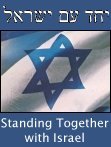

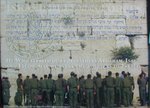

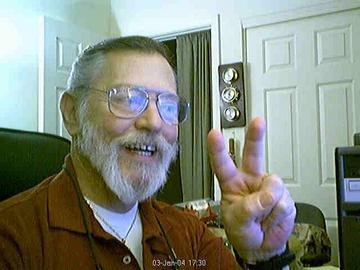






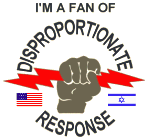





 While doing IDF (Israel Defence Forces) reserve duty on a mountain overlooking the
While doing IDF (Israel Defence Forces) reserve duty on a mountain overlooking the 

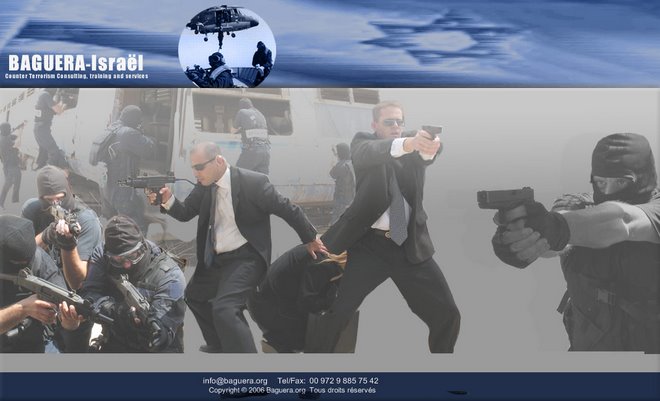



No comments:
Post a Comment